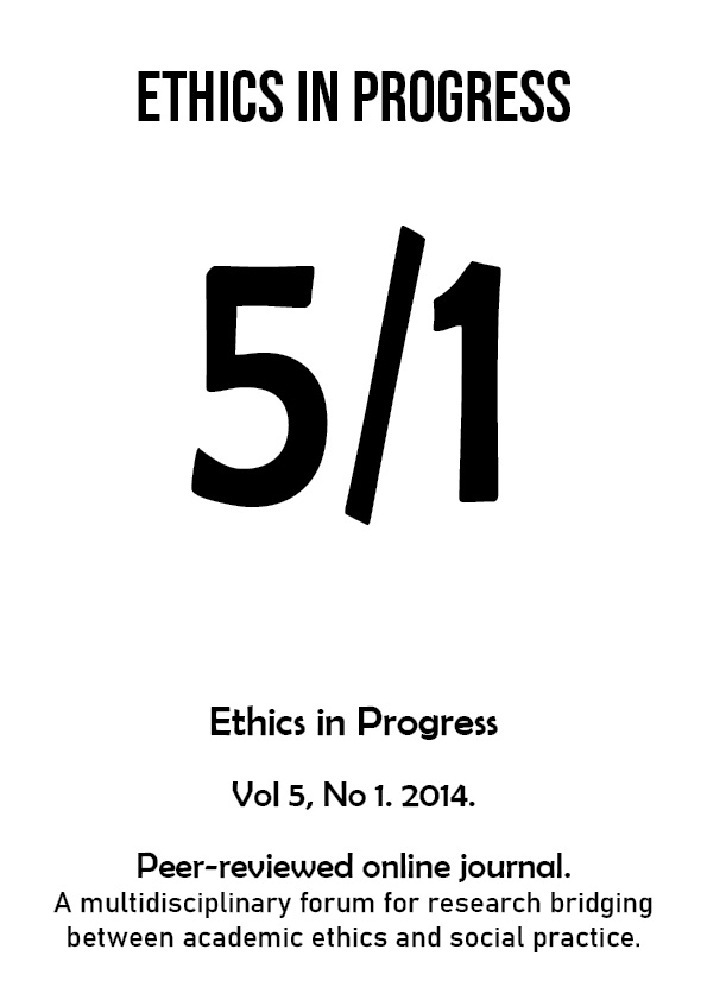Abstract
The need for constructing an environmental ethics that keeps sustainability in mind is the result of a collision of the realization that the natural environment is neither limitless nor impervious to actions with a view of nature that has been fundamentally instrumentalist and anthropocentric. This paper will borrow from architectural theory in an effort to do two things: First, it will point to some of the limitations of an anthropocentric view of nature and how it impacts efforts to influence environmental policy; second, it will suggest that ideas from Aristotle and Actor Network Theory can help to provide a paradigm within which we can think about nature in a way that offers an alternative framing of questions about the environment.References
Aristotle. 1984. “On the Soul”. In Barnes, J. (Ed.), The Complete Works of Aristotle. Vol.1. Princeton: Princeton University Press.
Ausonius. 1961. “The Moselle”. In Loeb Classical Library: Ausonius I. Trans. H. G. E. White. Cambridge: Harvard University Press.
Blackbourn, D. 2006. The Conquest of Nature. Water, Landscape, and the Making of Modern Germany. New York: W.W. Norton.
Cermakian, J. 1975. The Moselle. River and Canal from the Roman Empire to the European Economic Community. Toronto: University of Toronto Press.
Cioc, Mark. 2001. The Rhine: An Ecobiography 1815-2000. Seattle: University of Washington Press.
Collingwood, R.G. 1960. The Idea of Nature. Oxford: Oxford University Press.
Heidegger, M. 1971a. “The Origin of the Work of Art”. In Poetry, Language, Thought. Trans. A. Hofstadter. New York: Harper and Row Publishers.
Heidegger, M. 1971b. “Building, Dwelling, Thinking”. In Poetry, Language, Thought. Trans. A. Hofstadter. New York: Harper and Row Publishers.
Heidegger, Martin. 1977. “The Question Concerning Technology”. In The Question Concerning Technology and Other Essays. Trans. W. Lovitt. NewYork: Harper Torchbooks.
Latour, B. 2004. Politics and Nature. How to Bring the Sciences into Democracy. Cambridge, MA: Harvard University Press.
Nash, R. 1982. Wilderness and the American Mind. 3rd edition. New Haven: Yale University Press.
Norberg-Schulz, Ch. 1979. Genius Loci: Towards a Phenomenology of Architecture. New York: Rizzoli.
Norberg-Schulz, Ch. 1988. Architecture: Meaning and Place. Selected Essays. New York: Rizzoli.
Panofsky, E. 1976. Gothic Architecture and Scholasticism. New York: New American Library.
Schama, S. 1995. Landscape and Memory. New York: Alfred A. Knopf, Inc.
Scott, J. 2002. “Having a Need to Act.” In Backhaus, G. & Murungi, J. (Eds.), Transformations of Urban and Suburban Landscapes. Perspectives from Philosophy, Geography, and Architecture. Lahnam, MD: Lexington Books: 125-152.
Shellenberger, M. & Nordhaus, T. 2004. “The Death of Environmentalism. Global Warming Politics in a Post-environmental World”. Available from: http://heartland.org/sites/all/modules/custom/heartland_migration/files/pdfs/16188.pdf [Last accessed March 28, 2013].
Tschumi, B. 1994. Architecture and Disjunction. Cambridge, MA: MIT Press.
Waring, G. 1878. The Bride of the Rhine: Two Hundred miles in a Mosel Row Boat. Boston: J.R. Osgood and Company.
Wightman, E. M. 1971. Roman Trier and the Treveri. Westport, CT: Praeger.
Worster, D. 1993. The Wealth of Nature. Environmental History and the Ecological Imagination. New York: Oxford University Press




